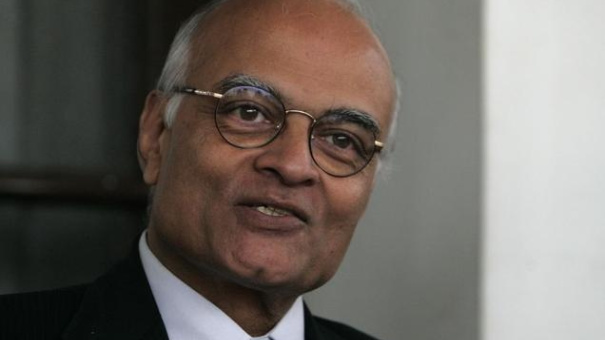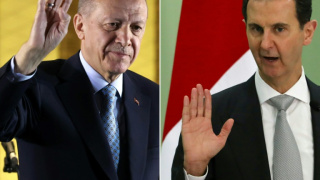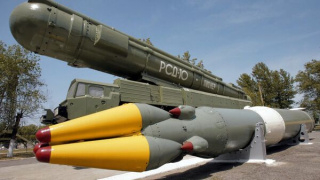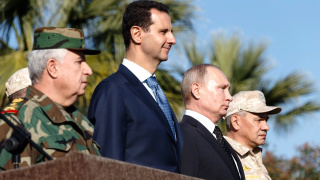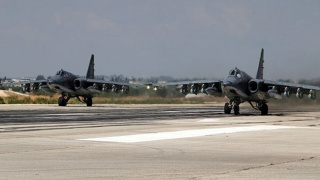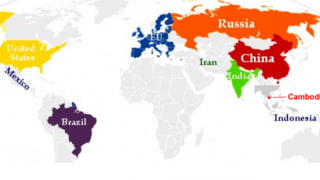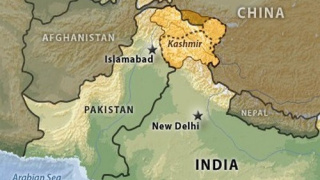A climate change in US-Russia ties bodes well for Syria
The outcome of the Climate Change Conference in Paris will be known in another 10-12 days’ time, but there has been a takeaway already. For sure, first signs have appeared of a convergence between the United States and Russia as regards political settlement in Syria and this also signals a reset in ties between the West and Russia.
Following the talks with the US President Barack Obama in Paris on Monday, Russian President Vladimir Putin assessed that “overall, we have an understanding of where we need to go” in regard of a political settlement in Syria. He envisaged “joint actions” in drawing up lists of extremist groups operating in Syria and “the healthy part of the Syrian opposition.”
Putin summed up: “We are currently seeking a platform to move forward. I hope that our foreign ministers will be able to find more common ground at the upcoming meeting in Vienna; I think we have the prerequisites for this.”
Obama on his part made a hugely significant gesture to Putin by expressing regret over the recent downing of the Russian jet by Turkey. At one stroke, Obama distanced the US from Turkey’s act. Quite obviously, Washington will express solidarity with Turkey, which is a NATO country, and will uphold Turkey’s right to defend its borders (which are also NATO’s borders), but regards the current tensions as a Turkish-Russian issue.
This gives a free hand to Moscow to pile pressure on Ankara to back off from ravaging Syria and to systematically rupture Turkey’s links with the Islamic State. Thus, Turkish aircraft can no longer fly over Syrian skies, while Russia has intensified its air strikes in support of Syrian government forces to wrest control of the western end of Syrian-Turkish border from the hands of the IS’ front organizations supported by Ankara.
Russia is helping Syrian Kurdish forces (which are heavily supported by US air power as well) to advance further west from their frontline on the Euphrates and link up with the Kurdish enclave of Afrin. Put differently, a de facto Kurdish state is likely emerging along Turkey’s southern flank with tacit help from the US and Russia.
Meanwhile, Wall Street Journal has reported that the US has also given a “tough message” to Turkey demanding that a 60-kilometre stretch of its border with Syria, which is the sole remaining crossing point for IS militants, should be forthwith closed. The daily quoted a senior US official as saying, “The game has changed. Enough is enough. The border needs to be sealed. This is an international threat, and it’s coming out of Syria and it’s coming through Turkish territory.”
Indeed, the dramatic U-turn in the US stance (which used to be one of passivity toward the nexus between Ankara and the IS) runs parallel with Russia’s politico-military moves to erode Turkey’s capacity to play the role of spoiler in the Syrian peace process. The net effect is that Turkey is being systematically reduced to a bystander at a crucial juncture when the Syrian peace process gets underway.
The ‘defanging’ of Turkey cannot but have a sobering effect on Saudi Arabia as well. Jordan is working closely with Russia in counter-terrorist operations in Syria. Equally, the meeting between Putin and Israeli Prime Minister Benjamin Netanyahu in Paris on Monday conveyed the impression that the latter is on board the Russian operations in Syria.
Netanyahu underscored the importance of Israel’s “coordination and de-confliction mechanisms, our attempts to cooperate with each other,” conveyed the hope that “Israel and Russia can see eye to eye on all strategic matters” and expressed satisfaction over the “openness and success of the relationship between Israel and Russia, our (the two leaders’) relationship.”
The bottom line is that the shift in the tectonic plates of the geopolitics of Syria got reflected, inevitably, in the meeting between Obama and Putin, which stands out as one of their most positive encounters in the recent times. Interestingly, Obama even looked ahead at a future when the sanctions against Russia can be rolled back.
Of course, Obama would have been au fait with Putin’s joint meeting in Paris earlier on Monday with German Chancellor Angela Merkel and the President of the European Commission Jean-Claude Juncker. No details of the trilateral meeting have been divulged, but it is useful to recall that Juncker has been a trenchant critic of the US’ policy to isolate Russia.
Speaking in Berlin recently, Juncker said Europe needed to improve its relationship with Russia, stressing that the West had to “treat Russia properly” and address it as an equal. To quote from Juncker’s speech (which was largely devoted to the refugee crisis and the Syrian conflict): “We must make efforts towards a practical relationship with Russia. It is not sexy but that must be the case, we can’t go on like this. I know from my conversations with Putin that he (does not accept) phrases like when Barack Obama said Russia was a regional power. What does that mean? You can’t talk about Russia like that.”
Indeed, diplomats on both sides of the divide have been quick to sense that the meeting between Obama and Putin in which Syria (and Ukraine) figured prominently, heralds a ‘thaw’ in the West’s ties with Russia. The US State Department Coordinator for Sanctions Policy Daniel Fried has been quoted as saying on Tuesday that Washington would keep open the possibility for improvement in relations with Moscow. “Don’t believe that bad relations with Russia are permanent,” Fried said at a European Policy Center think-tank conference in Brussels.
Also on Tuesday, in a speech addressed to the 9th Europe-Russia Forum at the European Parliament at Brussels, Russian Foreign Minister Sergey Lavrov expressed the conviction that it is possible to restore Russia-EU cooperation despite the current chill in relations. Lavrov said, “Relations between Russia and the European Union are going through hard times. At the same time, we are convinced that we will be able to scrap this negative trend and return to the path of multi-faceted partnership.”
It is a moot point whether the nascent signs of a US-Russian convergence on Syria are to be seen as an offshoot of a fundamental rethink in the West regarding ties with Moscow, or vice versa. All that matters for humanity is that the Climate Change Conference in Paris has got off to a promising start.
